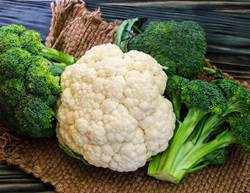Food fuels your immune system by helping it build new immune cells, protective antibodies, proteins and enzymes that, together, keep illness-causing invaders out. In fact, research suggests that providing your body with the right key nutrients through a balanced diet is one of the best ways to prevent colds, stomach bugs, and the like.
That’s partly because the digestive tract that your food passes through houses 70% of the immune system and a large part of the gut microbiome, explains nutrition scientist Dr Mary Weiler. The microorganisms that make up your gut microbiome require a healthy balance of food-sourced bacteria to function and, subsequently, to support optimal immune health.
“Remember the saying, ‘You are what you eat?’ It might sound silly, but as it relates to your immune system, it’s true,” Weiler says.
And what are the best foods to help fight viruses and protect yourself from illness, you ask? Below, we’ve rounded up everything to know about what to eat to boost your immunity – but first, some background on why that’s worth caring about.
Think of your immune system as your body’s gatekeeper. It serves as protection against any foreign substances (such as bacteria, viruses, parasites, or fungi) that may enter your body and cause harm.
Here’s how it works: Your immune system is a vast network of organs, proteins, and cells – like your skin, bone marrow, blood, and mucosal tissue – that join forces to distinguish healthy cells from not-so-healthy ones. How? When a germ makes its way into your body, your immune system receives signals that something isn’t quite right. From there, it responds by sending your body’s frontline defence force of white blood cells (or immune cells) to attack and destroy anything that it interprets as risky or dangerous.
You don’t realise how hard your immune system is working until you come down with something that your body may have never dealt with before. People with compromised immune systems – such as those who have autoimmune diseases like lupus or serious infections like HIV, people going through chemotherapy, or even pregnant women – are at a much higher risk of dealing with infection-inducing germs that wouldn’t be a problem if they were otherwise healthy. So it’s even more important for those populations to support their immune systems with a balanced diet.
Here are 30 immune-boosting foods to consider adding to your meals, whether you’re battling a health issue or currently feeling fit as a fiddle. According to our experts, they’re particularly rich in the type of nutrients that assist your body’s ability to stave off harmful pathogens.
Yoghurt
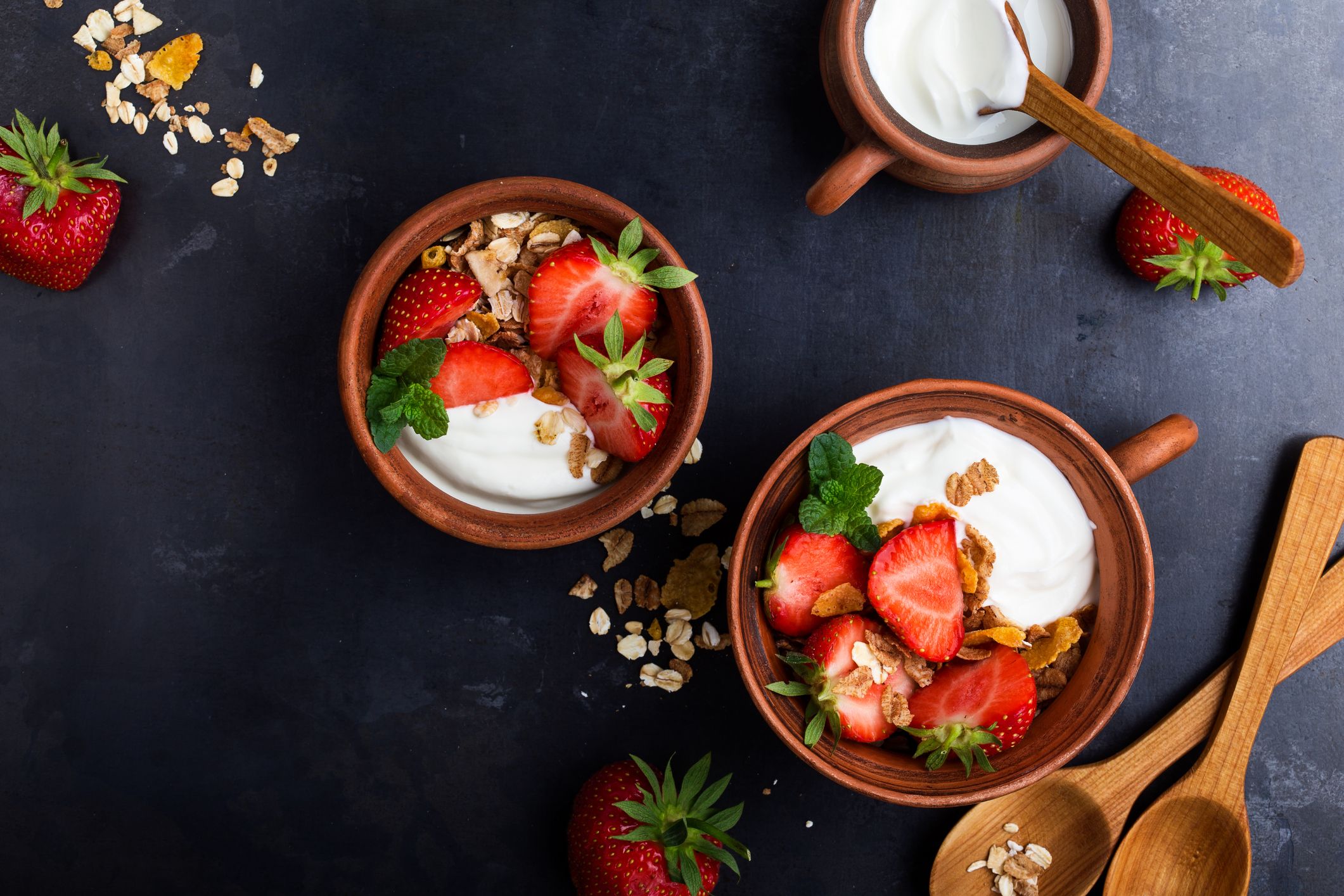
“Think of probiotics as the ‘good bacteria’ in the gut, helping influence the microorganisms that live in the digestive tract,” explains Weiler. While you can buy probiotic supplements, a 2017 study published in Nutrients found that daily consumption of probiotic-rich yoghurt can improve immune function by increasing the activity of natural killer cells, or cells that limit the spread of disease. Be sure to pick up containers free of excess added sugar – plain varieties (which you can flavour with cinnamon and fresh fruit) are your best bet, but anything with less than 8 total grams of sugar is a wholesome option.
Oats and barley
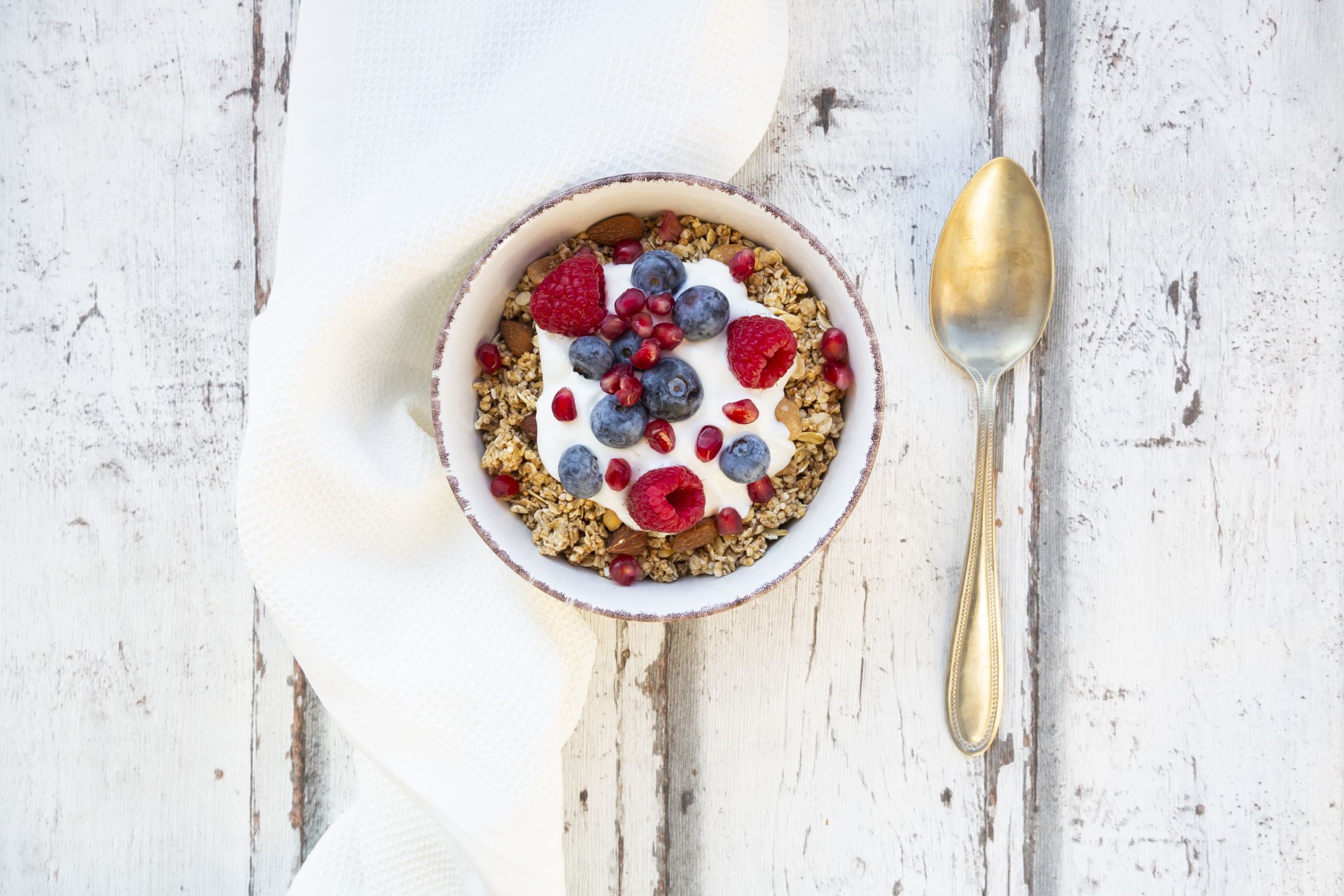
These grains contain beta-glucan, a type of fibre that helps fight disease by stimulating immune cells, research shows. Fibre in general also provides nourishment for healthy gut bacteria to thrive and thus support the immune system, Weiler explains.
Garlic
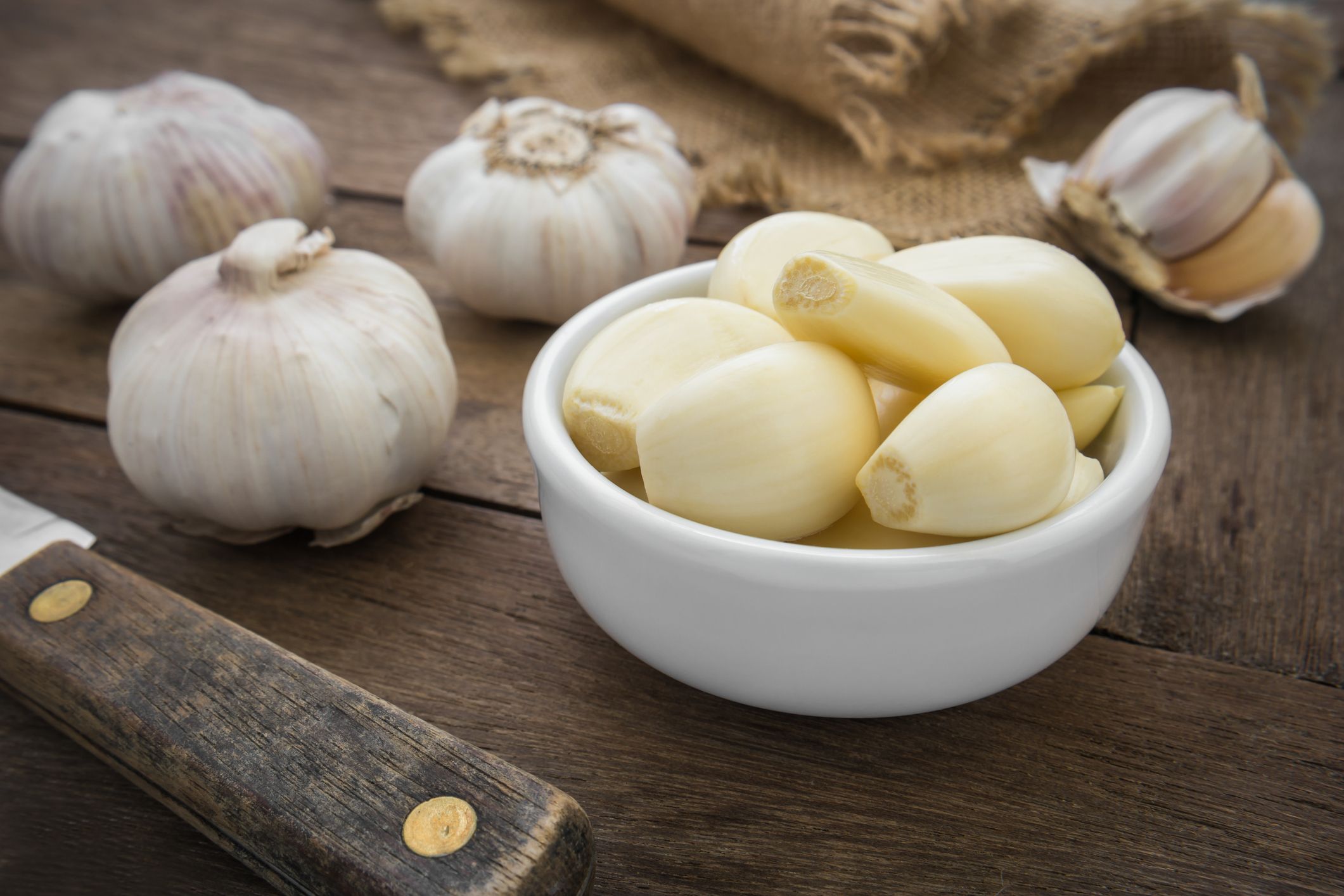
This potent onion relative contains the active ingredient allicin, which fights infection and bacteria. In one study, British researchers gave 146 people either a placebo or a garlic extract for 12 weeks; the garlic takers were two-thirds less likely to catch a cold. Another 2020 meta-analysis found that garlic consumption may lower the risk of colorectal cancer.
Shellfish
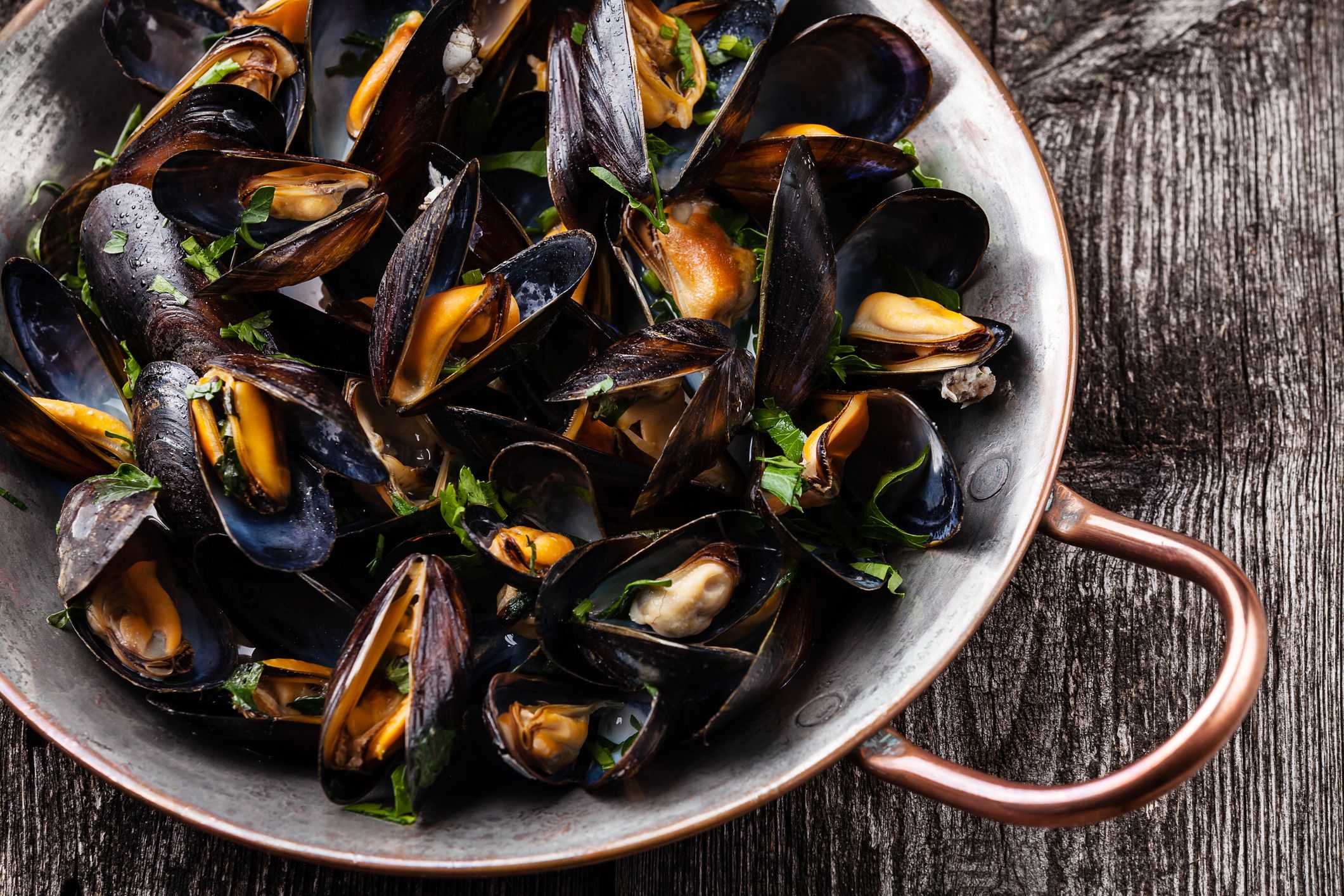
Selenium – plentiful in shellfish such as oysters, lobsters, crabs, and clams – helps white blood cells produce cytokines, proteins that help clear flu viruses out of the body.
Chicken soup
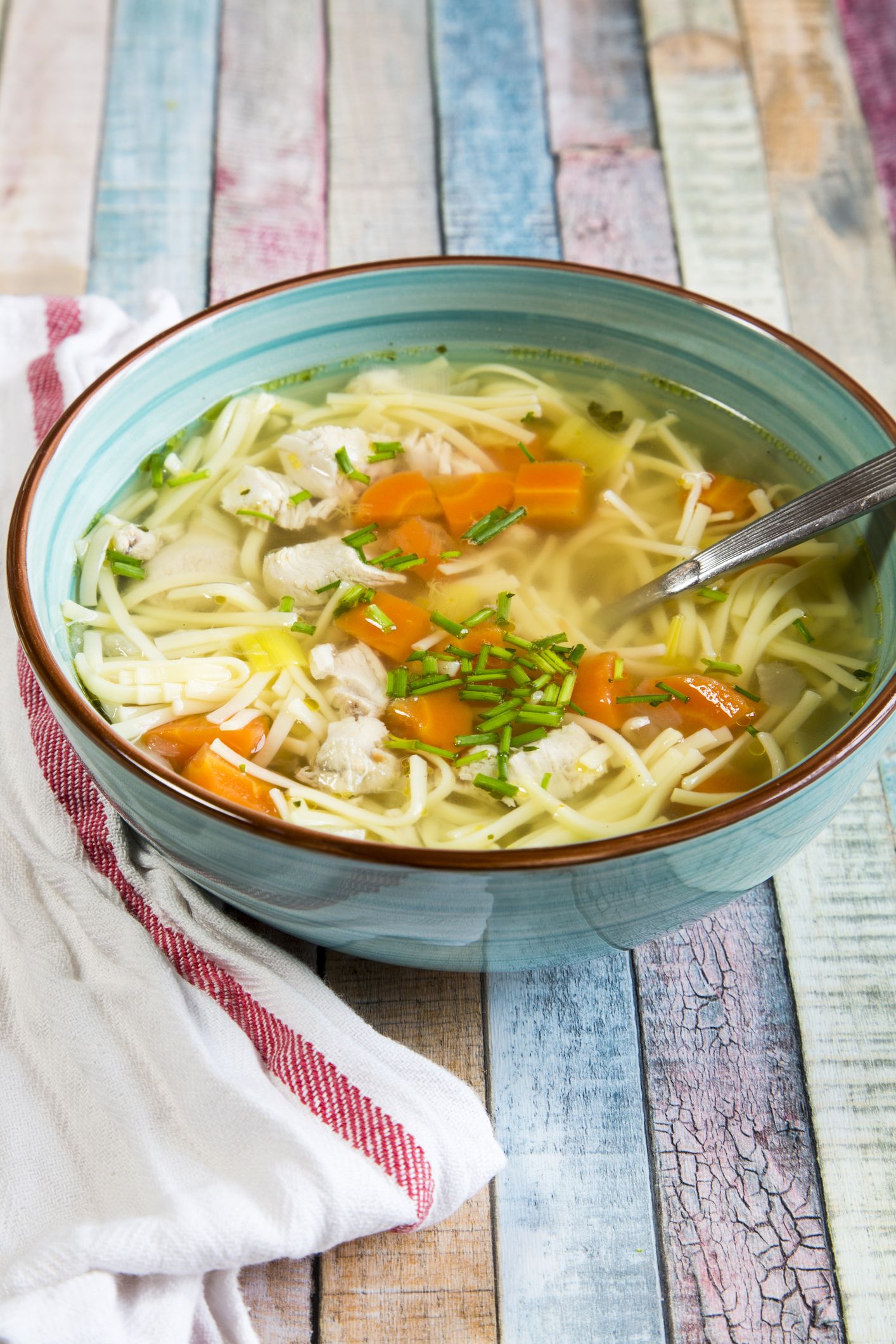
When University of Nebraska researchers tested 13 chicken soup brands, they found that all but one (chicken-flavoured ramen noodles) blocked the migration of inflammatory cells – an important finding, because cold symptoms are a response to the cells’ accumulation in the bronchial tubes. The amino acid cysteine released from chicken during cooking chemically resembles the bronchitis drug acetylcysteine, which may explain the results. The soup’s salty broth also keeps mucus thin the same way cough medicines do. Added spices, such as garlic and onions, can increase soup’s immune-boosting power.
Turmeric
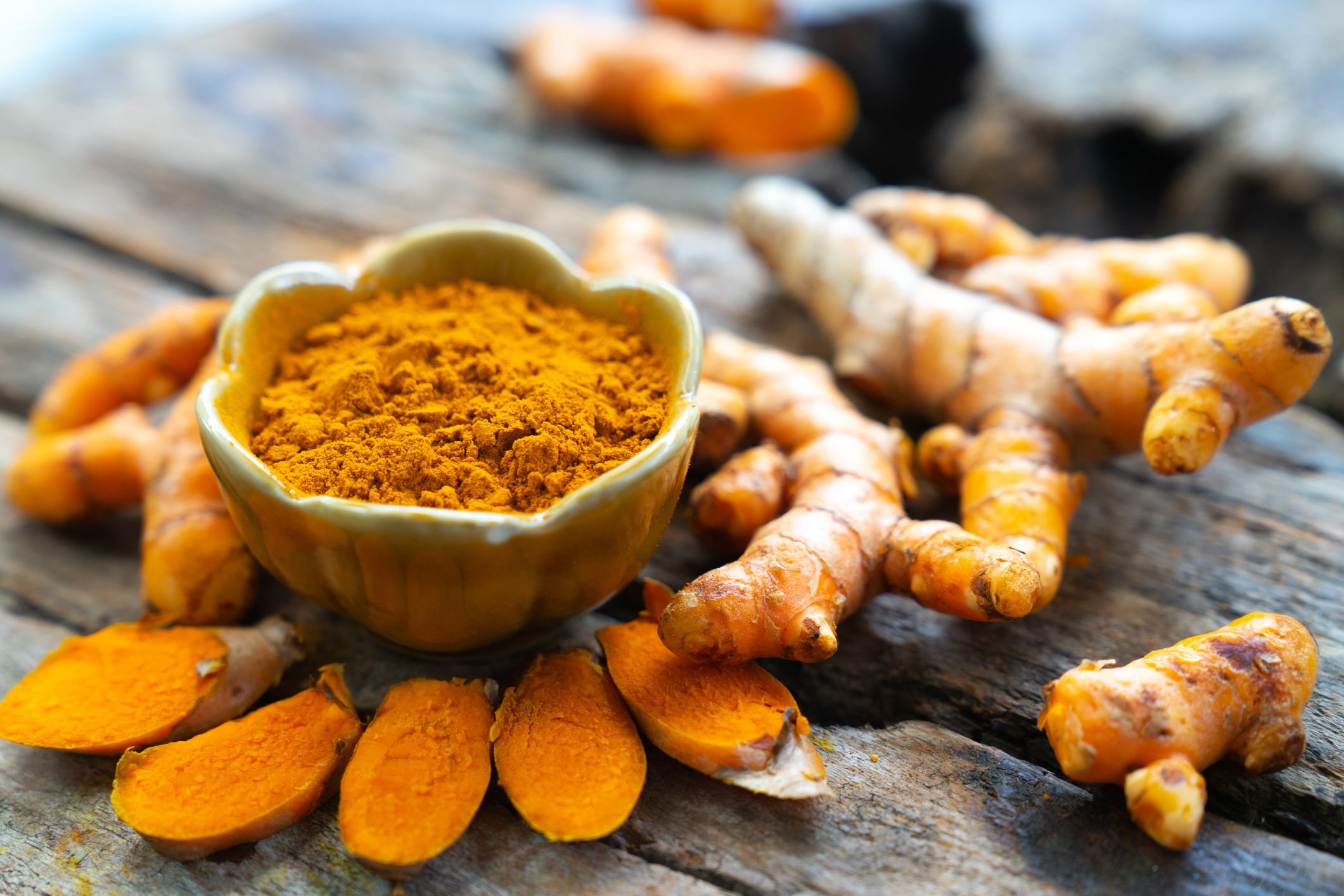
“Turmeric contains curcumin, a compound with anti-inflammatory properties that can help support a healthy immune system,” says nutritionist Brea Lofton. Lofton adds that one peer-reviewed study investigated how curcumin may be useful in preventing and treating chronic diseases associated with inflammation, and found that it has potential as a therapeutic agent for conditions such as arthritis, cancer, and cardiovascular disease, in part due to its immune-modulating properties.
Tea

Black tea contains L-theanine, an immune-boosting amino acid. Both black and green tea also contain catechins, antioxidants that have been found to possibly prevent the flu.
Beef
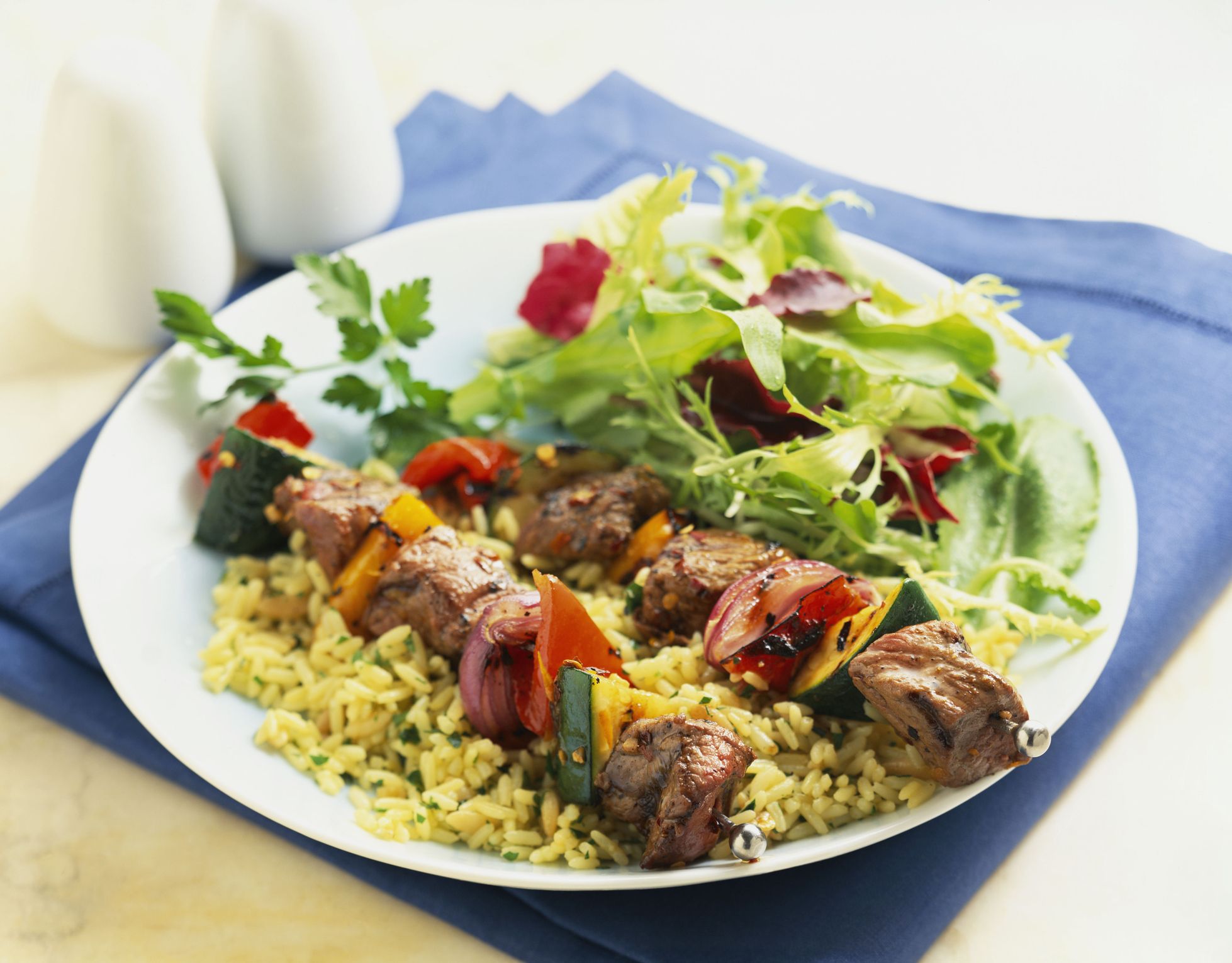
Zinc is essential for the development of white blood cells, the intrepid immune system cells that recognise and destroy invading bacteria, viruses, and assorted other bad guys, says Dr William Boisvert, an expert in nutrition and immunity. Beef is a good source of zinc, as are milk and beans.
Pork

It’s important to get the recommended 8 to 11 mg of zinc per day to keep the immune system functioning properly, says Weiler. She recommends adding pork as another zinc source in a balanced diet, be it a grilled pork chop or tenderloin.
Almonds
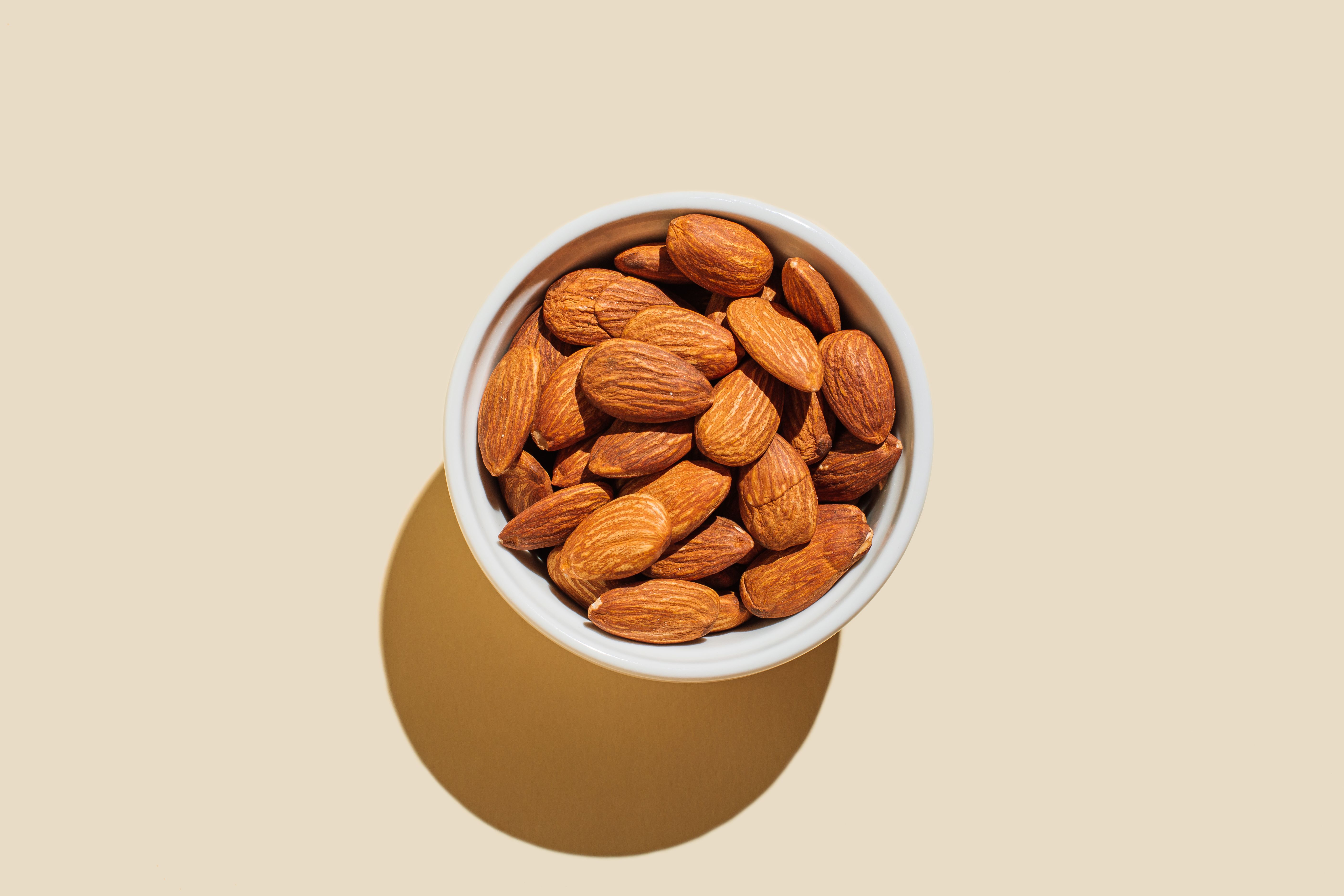
Almonds are high in vitamin E, containing around 7 mg per serving, explains Lofton. Vitamin E is an antioxidant that can help protect cells from damage and therefore, potentially prevent illness.
Sweet potatoes
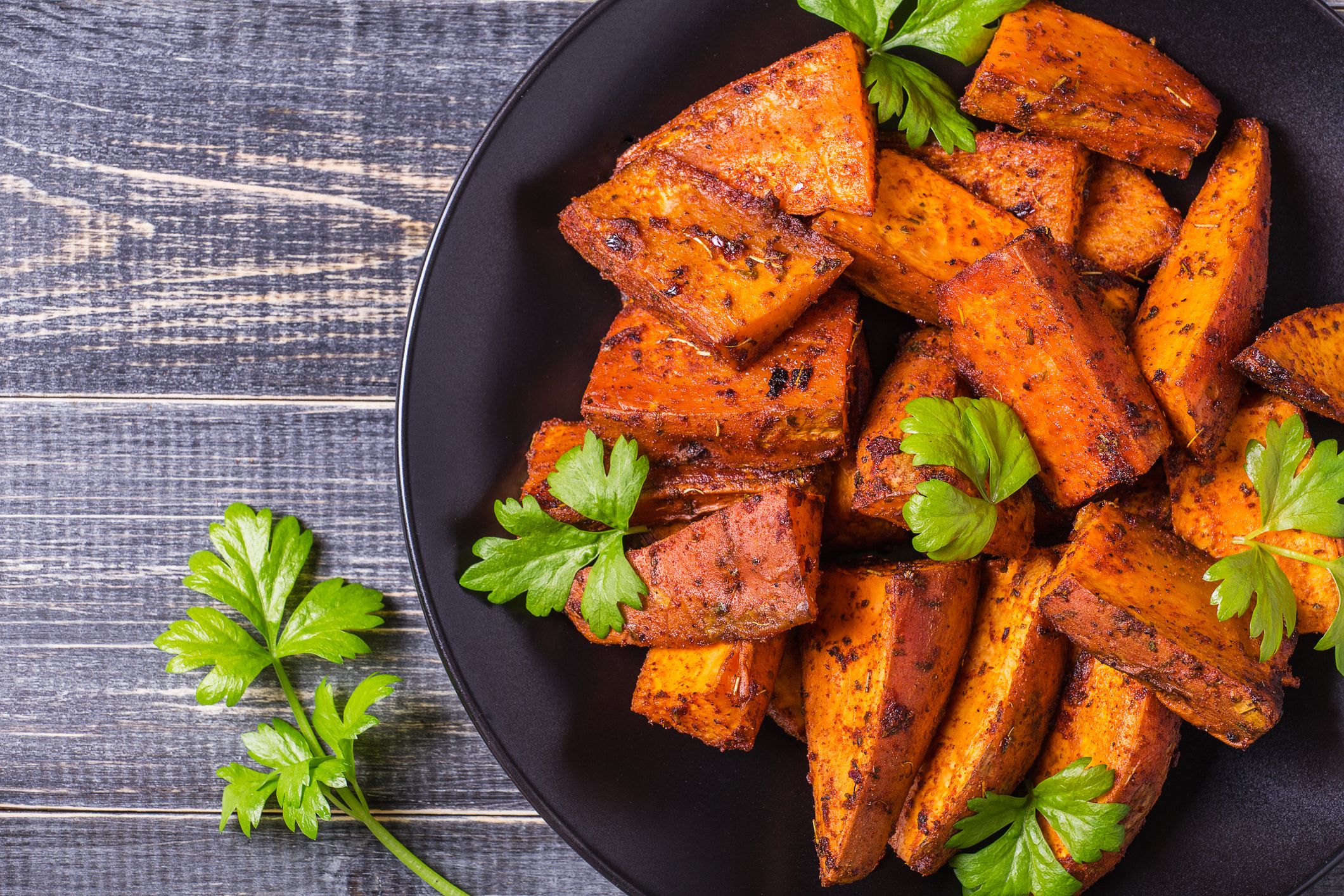
You may not think of skin as part of your immune system. But this crucial organ serves as a first-line fortress against bacteria, viruses, and other undesirables. To stay strong and healthy, your skin needs vitamin A. “Vitamin A plays a major role in the production of connective tissue, a key component of skin,” explains Dr David Katz. One of the best ways to get vitamin A into your diet is from foods containing beta-carotene (which gives them a vibrant orange pigment), like sweet potatoes, carrots, squash, canned pumpkin, and cantaloupe.
Ginger
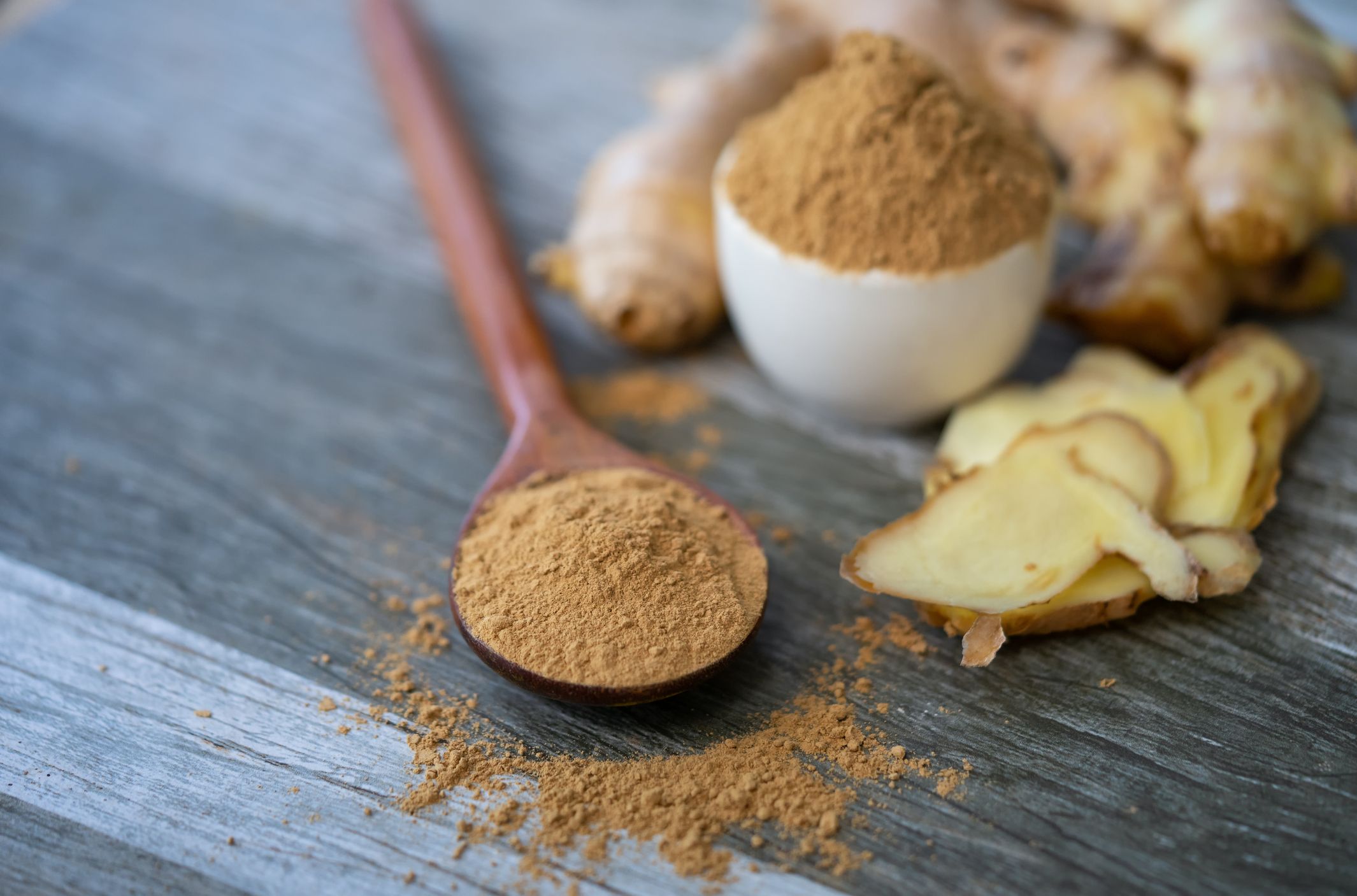
“Ginger can help boost immune function by reducing inflammation in the body,” says Lofton.
Kale
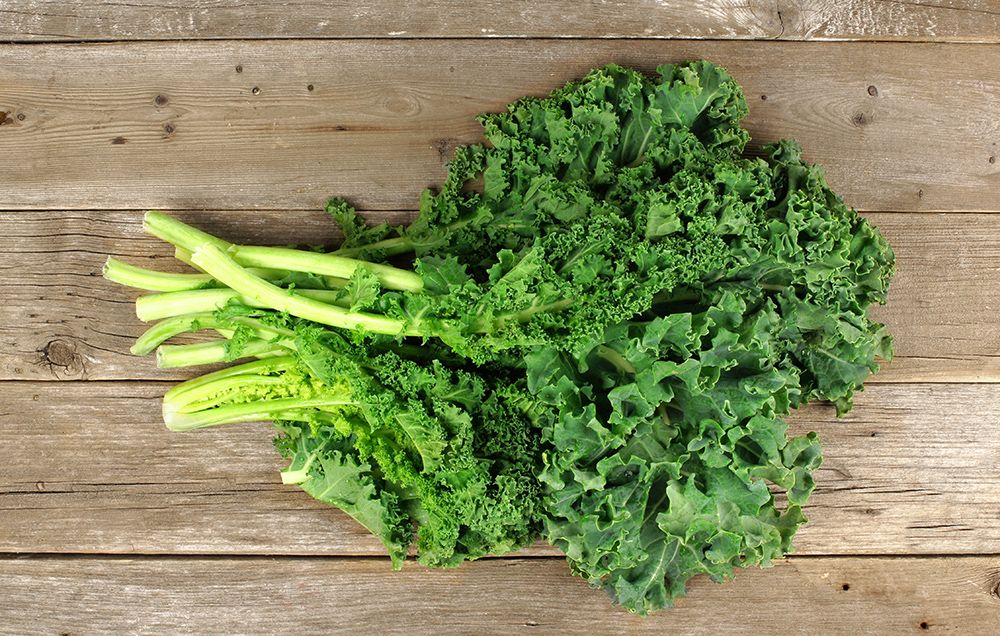
Along with orange produce, dark, leafy greens like kale contain vitamin A and can help bolster immune function.
Bell peppers
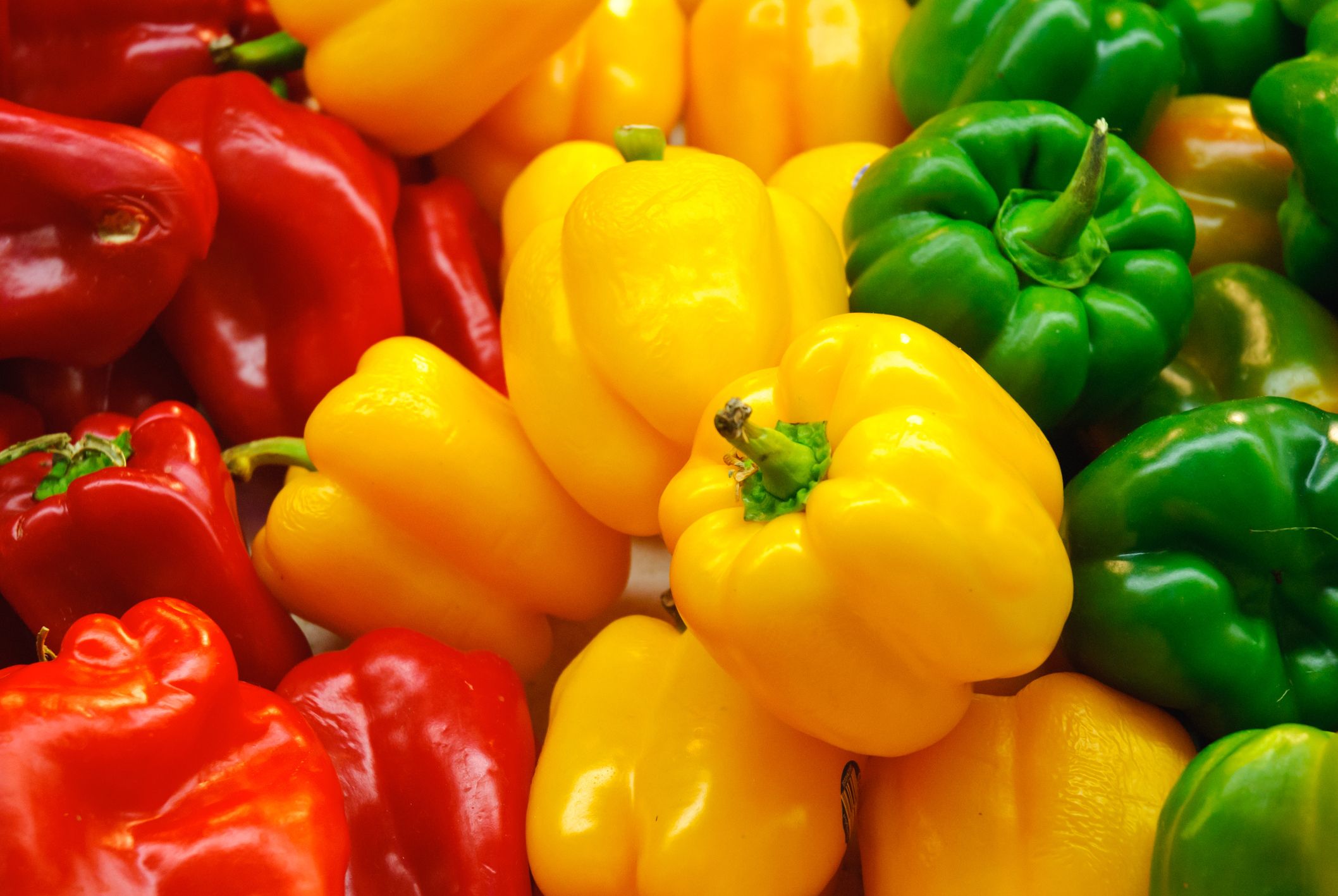
There’s a reason you’re told to load up on vitamin C when you get sick: The nutrient is great for your skin, which acts as a barrier between your body and harmful organisms. On top of that, studies show that not getting enough vitamin C can actually impair your immune response and make you more susceptible to infections. While the jury is still out on whether or not vitamin C can truly prevent a cold, a 2017 review of research suggests supplementing with C can help stave off respiratory infections: or at the very least, help reduce the severity and length of your symptoms if you fall ill.
Broccoli
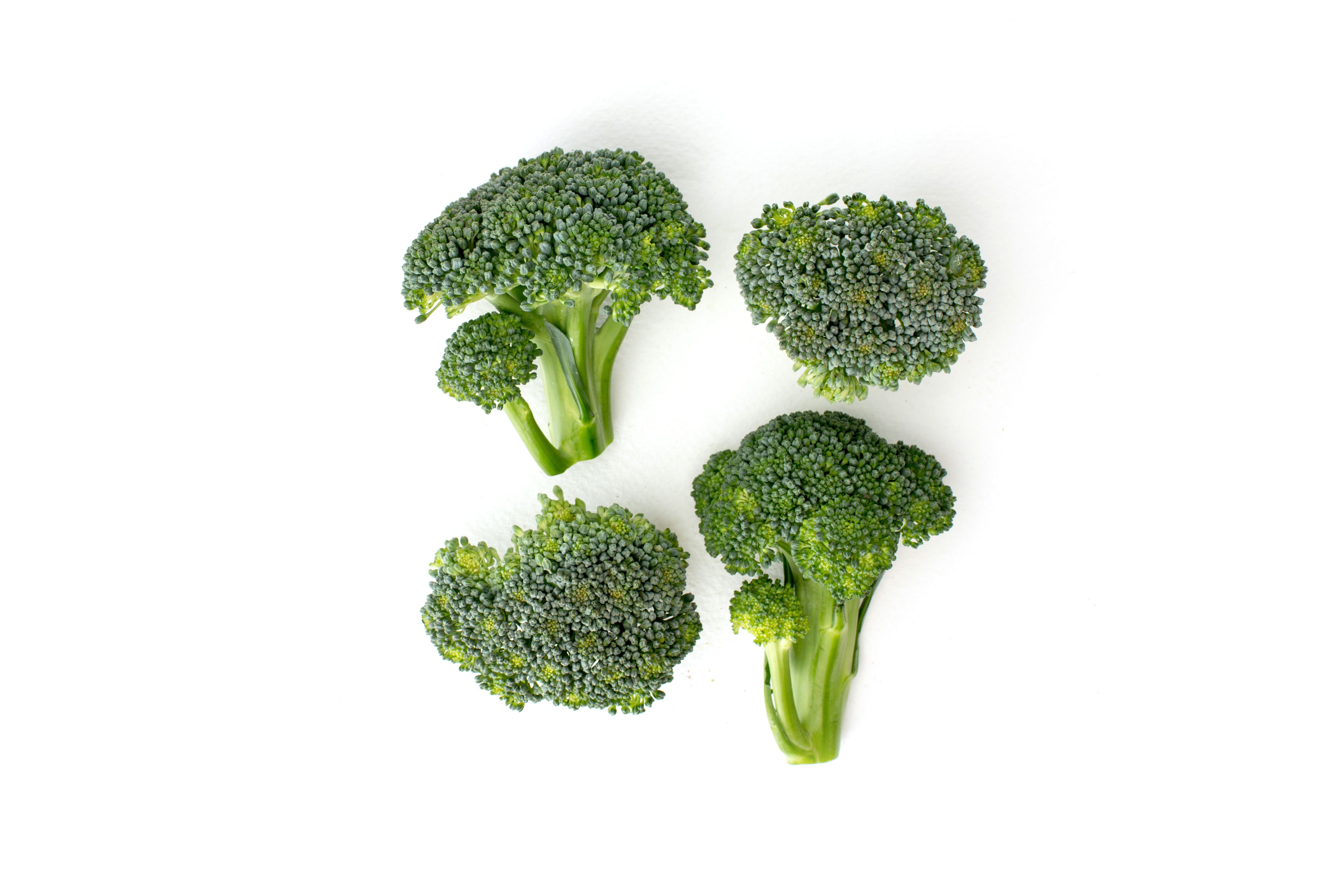
Lofton says broccoli is rich in vitamins A and C, as well as fibre, which work together to support a healthy gut microbiome and immune system.
Eggs
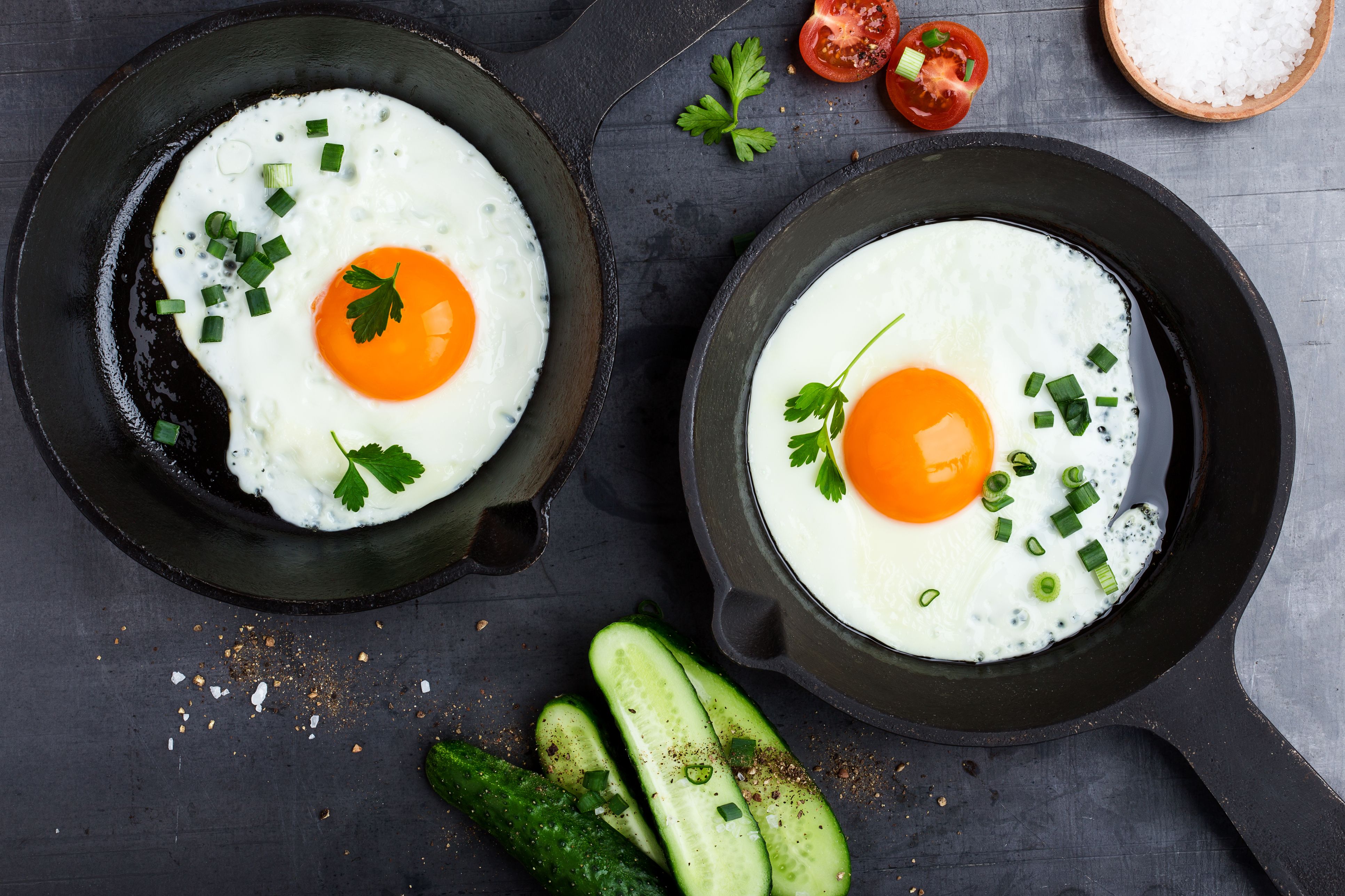
You already know that vitamin D is important for your bones, since it helps you absorb calcium properly; but it’s also essential for a healthy immune system. In fact, vitamin D deficiency (which affects an estimated 1 billion people worldwide) may increase your chances of upper respiratory infections and even immune disorders such as multiple sclerosis, type 1 diabetes and Crohn’s disease, research shows. Why? Scientists have found that your immune cells actually have vitamin D receptors, which are important for regulating your body’s natural defence mechanisms.
While the sunshine vitamin is hard to come by naturally through your diet, foods high in vitamin D, such as eggs, can help you meet your daily intake. Healthdirect recommends a minimum of 5 micrograms of vitamin D for most adults daily, increasing to 10 micrograms above the age of 50.
Mushrooms
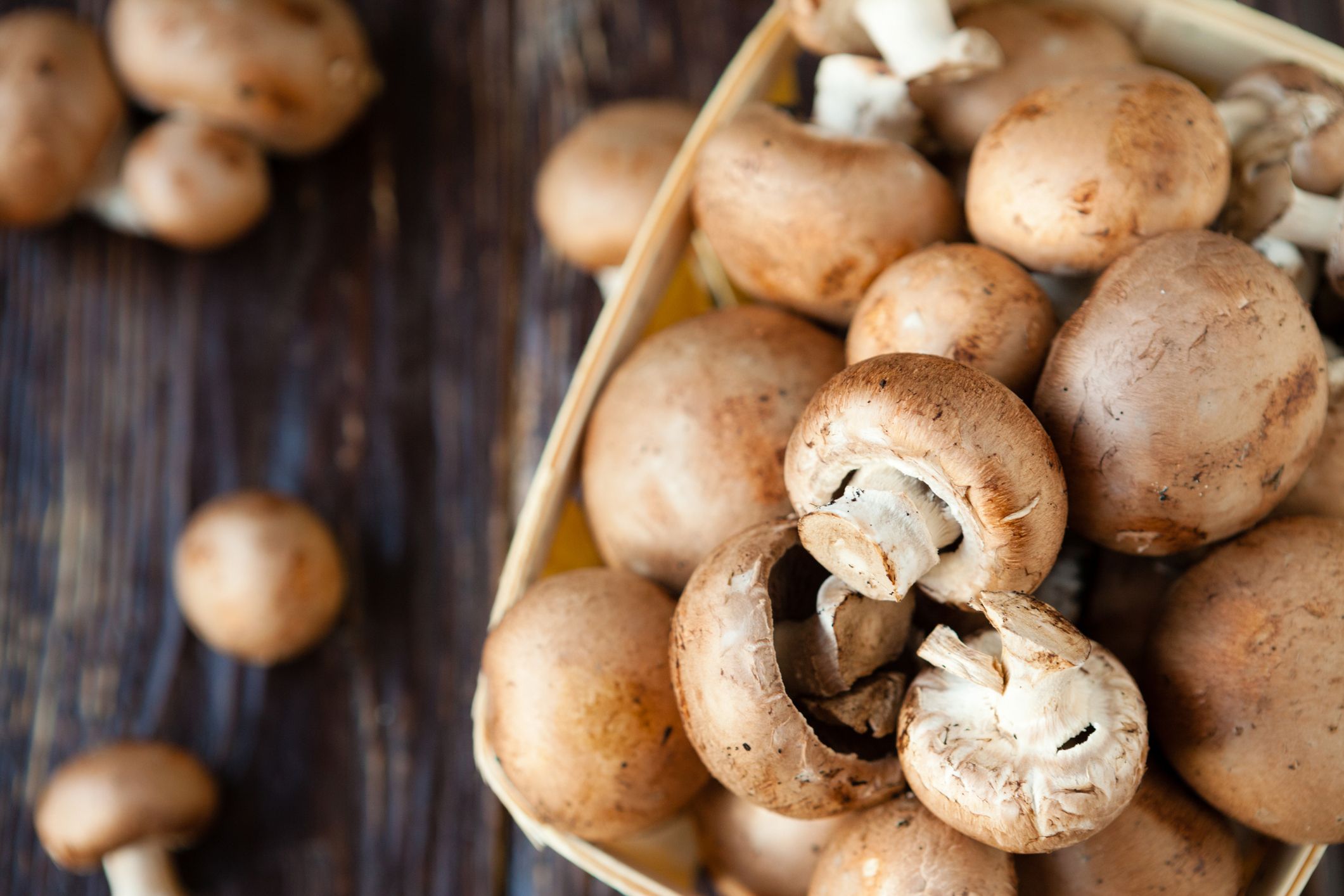
People around the world have turned to mushrooms for a healthy immune system for centuries, and contemporary researchers now know why. “Studies show that mushrooms increase the production and activity of white blood cells, making them more aggressive. This is a good thing when you have an infection,” says Dr Douglas Schar. They’re also another great source of vitamin D.
Bone broth
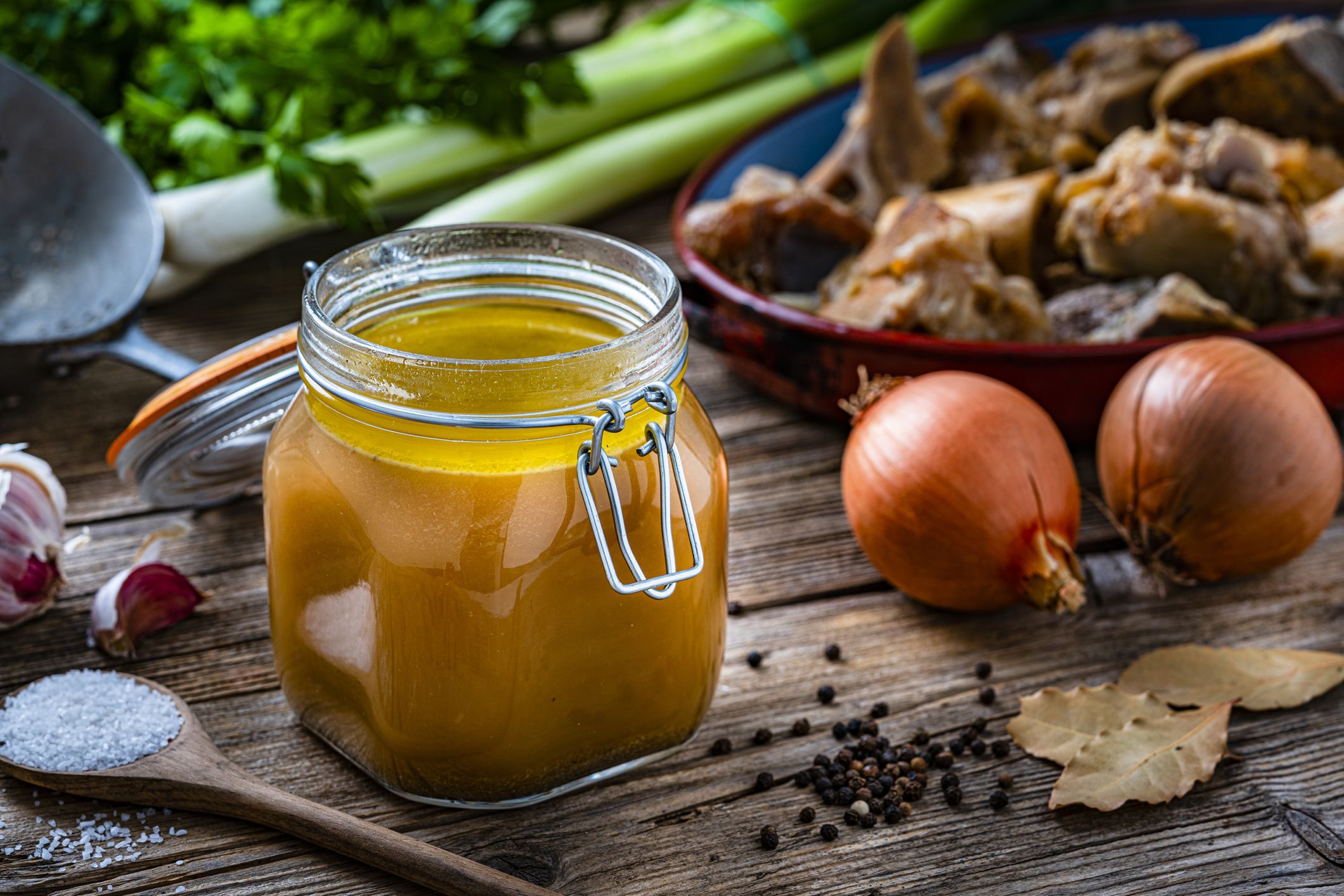
“Bone broth is made by simmering bones and connective tissue from animals, which releases nutrients such as collagen, amino acids, and minerals,” explains Lofton. “These nutrients can help support immune function and overall health.”
Kefir
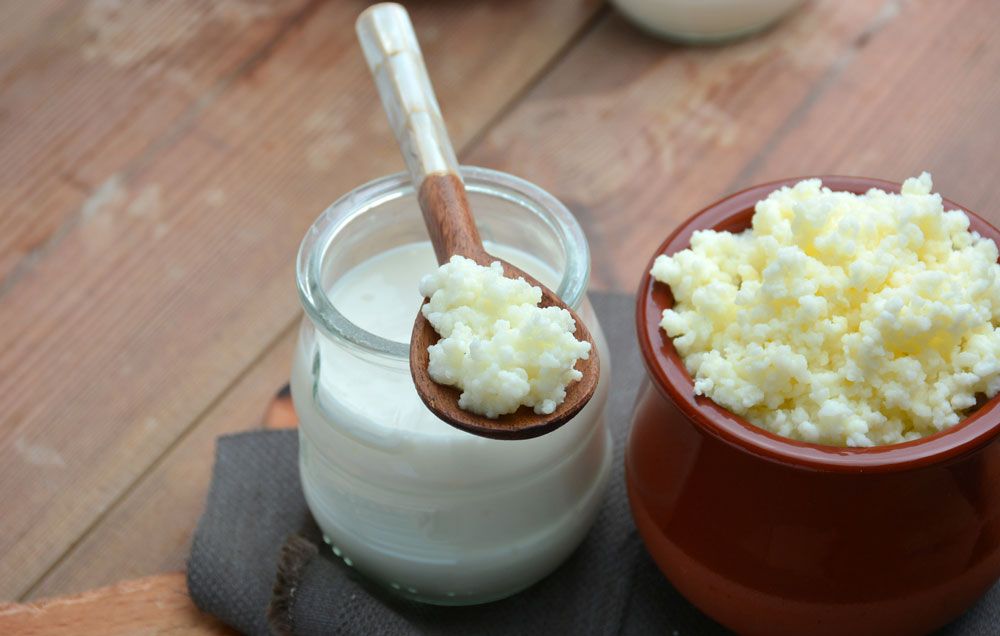
Like yogurt, kefir, a fermented yogurt drink, contains gut- and immune-boosting probiotics.
Fatty fish
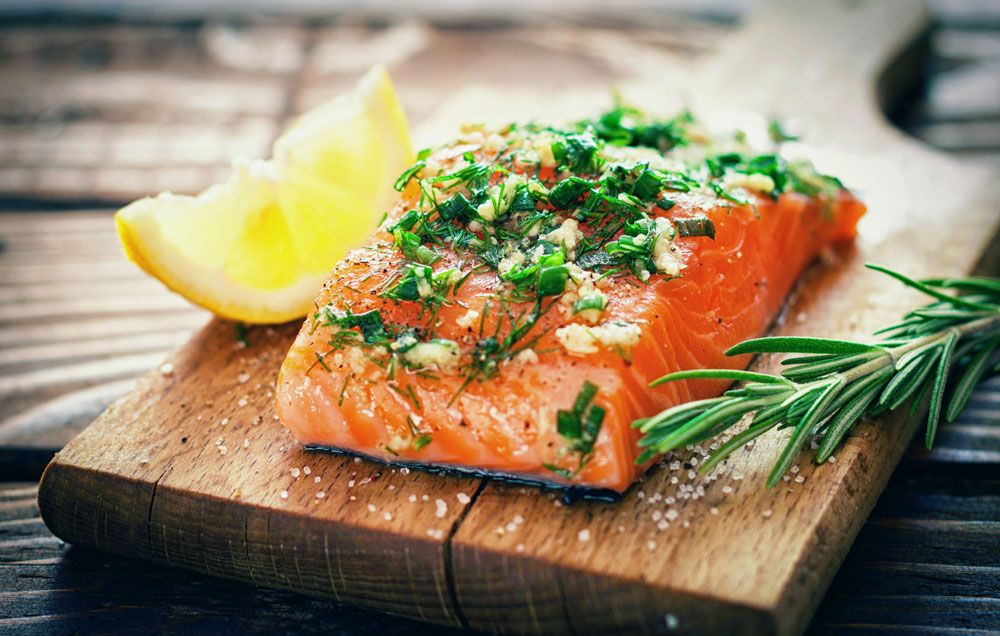
Salmon, mackerel, and herring are rich in omega-3 fatty acids, which reduce inflammation, increasing airflow and protecting lungs from colds and respiratory infections (salmon is another vitamin D source, too). One animal study also found that the nutrient may help ward off various strains of the flu.
Citrus
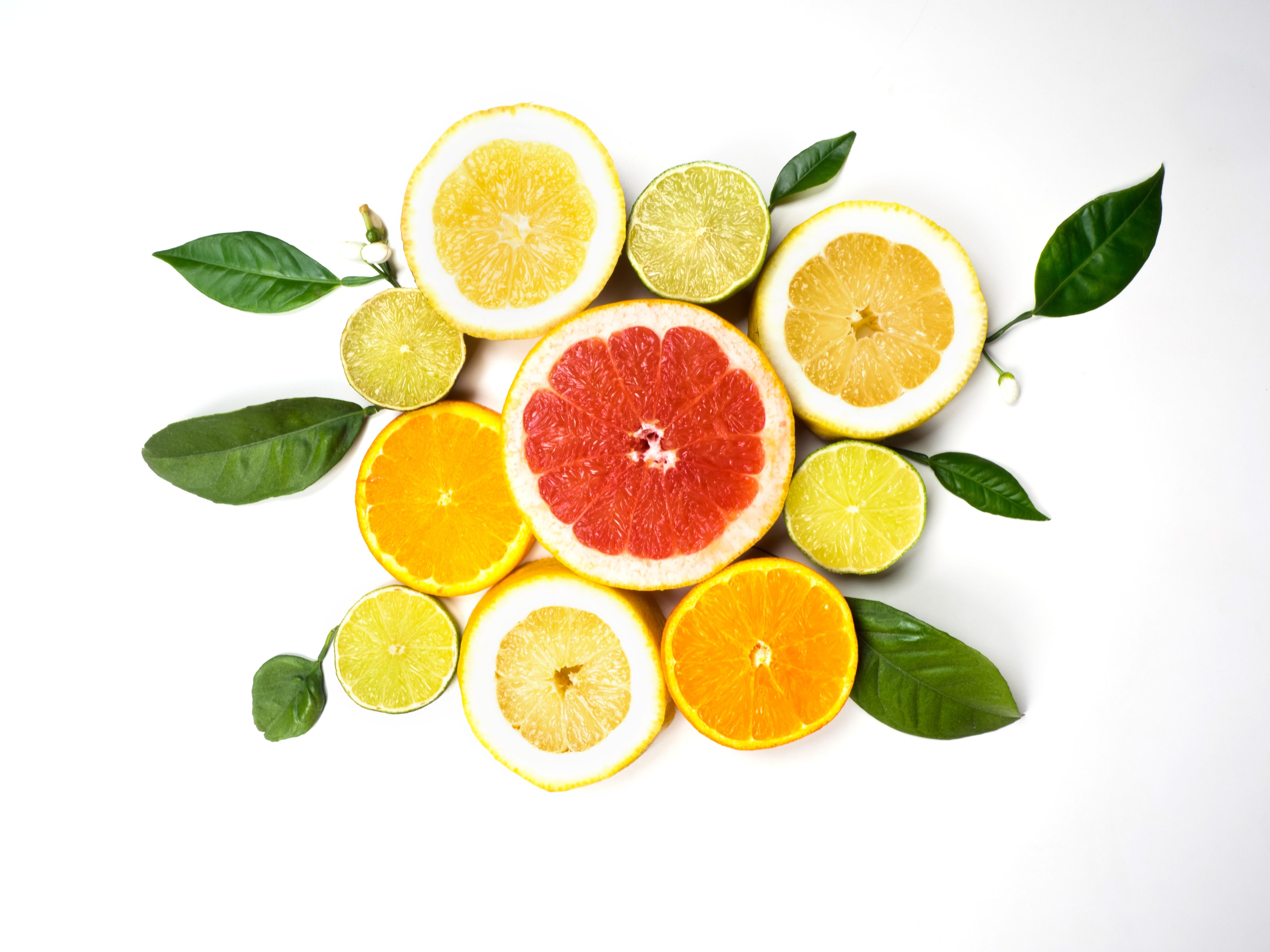
As we all probably know, citrus fruits like oranges and grapefruit are high in vitamin C, a nutrient that is essential for immune function. “Vitamin C builds healthy skin and tissue to resist entry of bacteria and other germs," says Weiler. "The vitamin also contributes to the rapid increase in B cells and T cells, two white blood cells that play a role in secreting antibodies and killing off infections."
Sunflower seeds
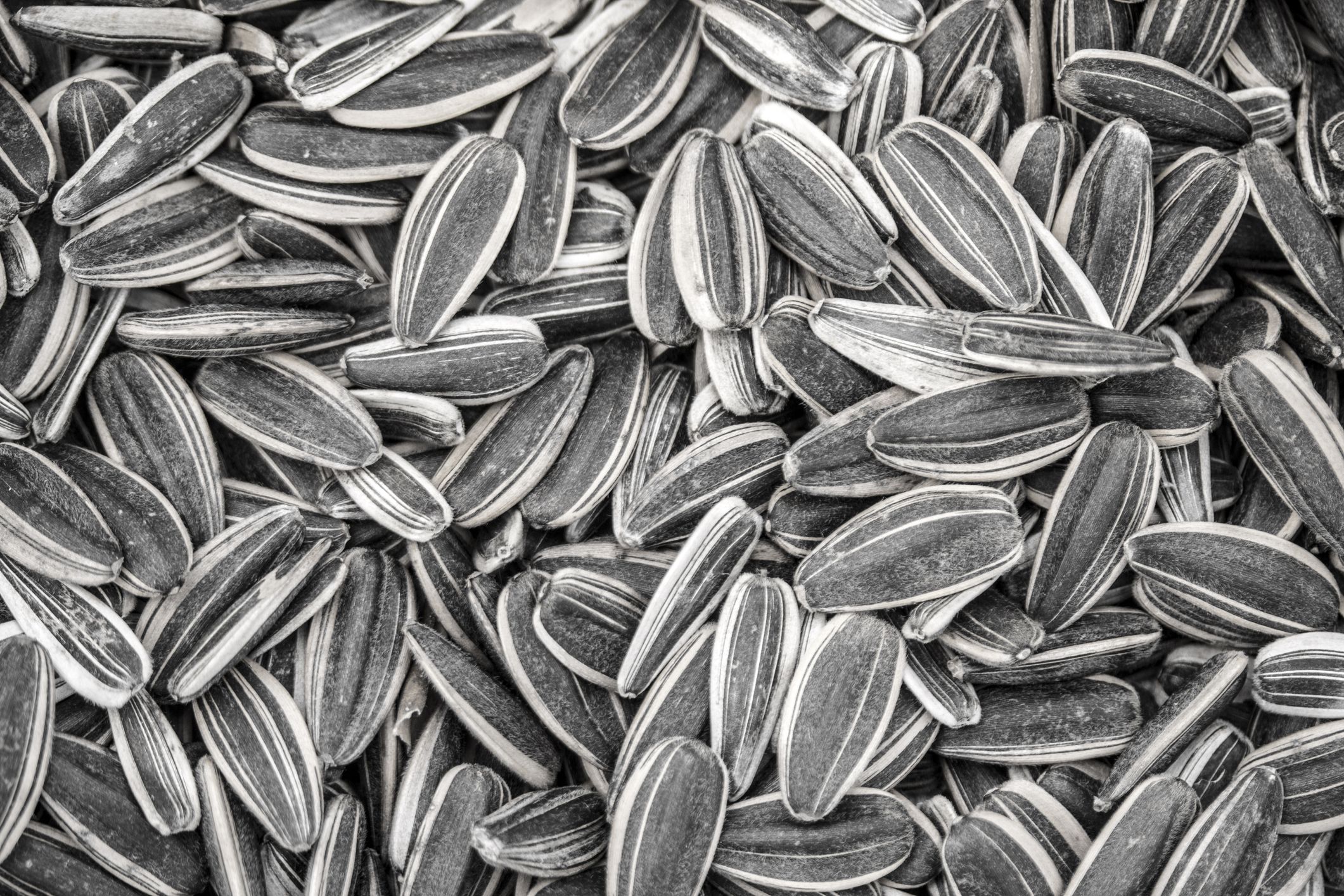
More than just a salty summer snack, Lofton points out that sunflower seeds are high in vitamin E, an antioxidant that can help protect cells from damage.
Blackberries
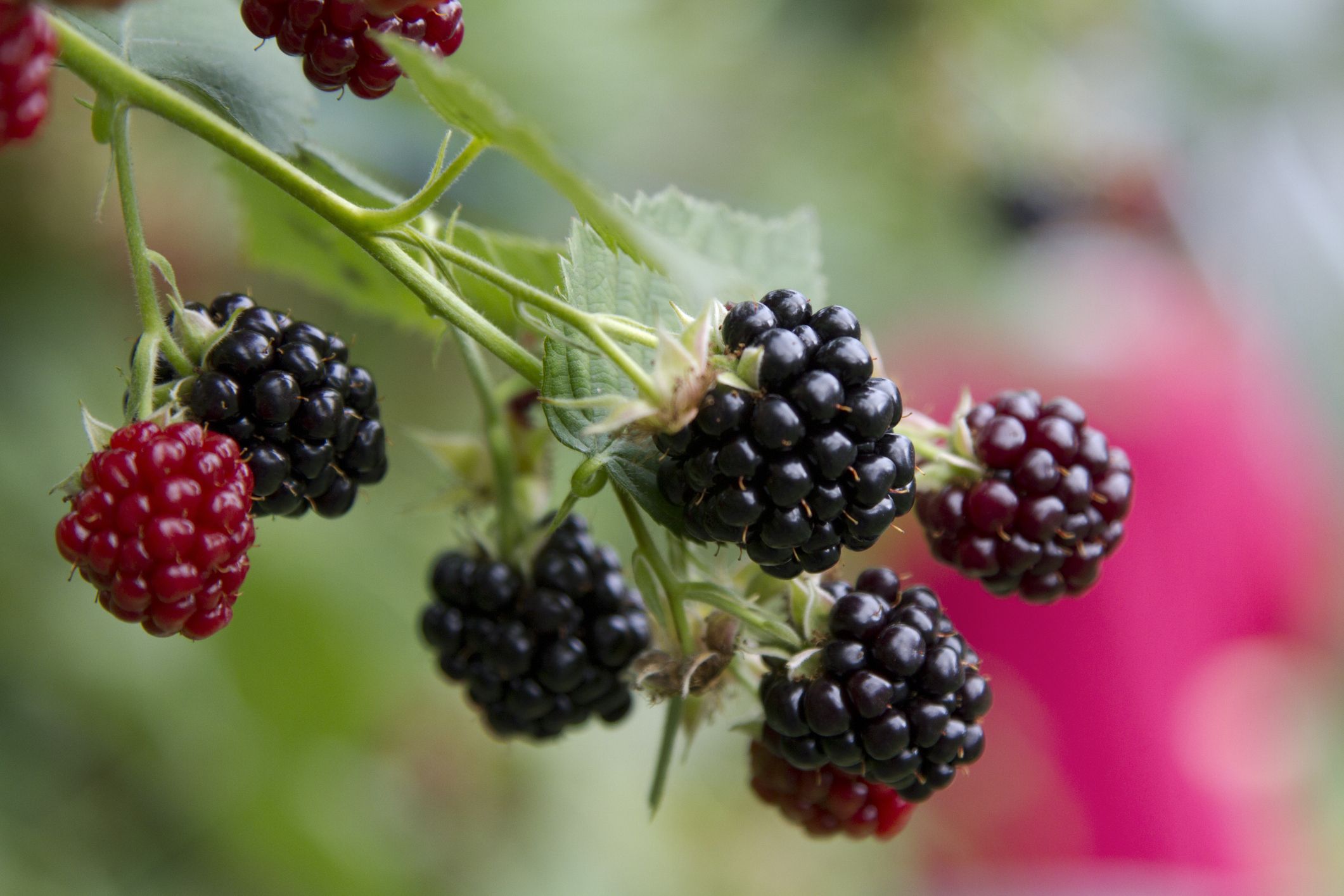
Blackberries are high in antioxidants, plant compounds that can help shield the body from environmental stressors and germs, says Lofton. They also contain fibre and vitamin C, which support a healthy immune system and gut.
Chicken breast
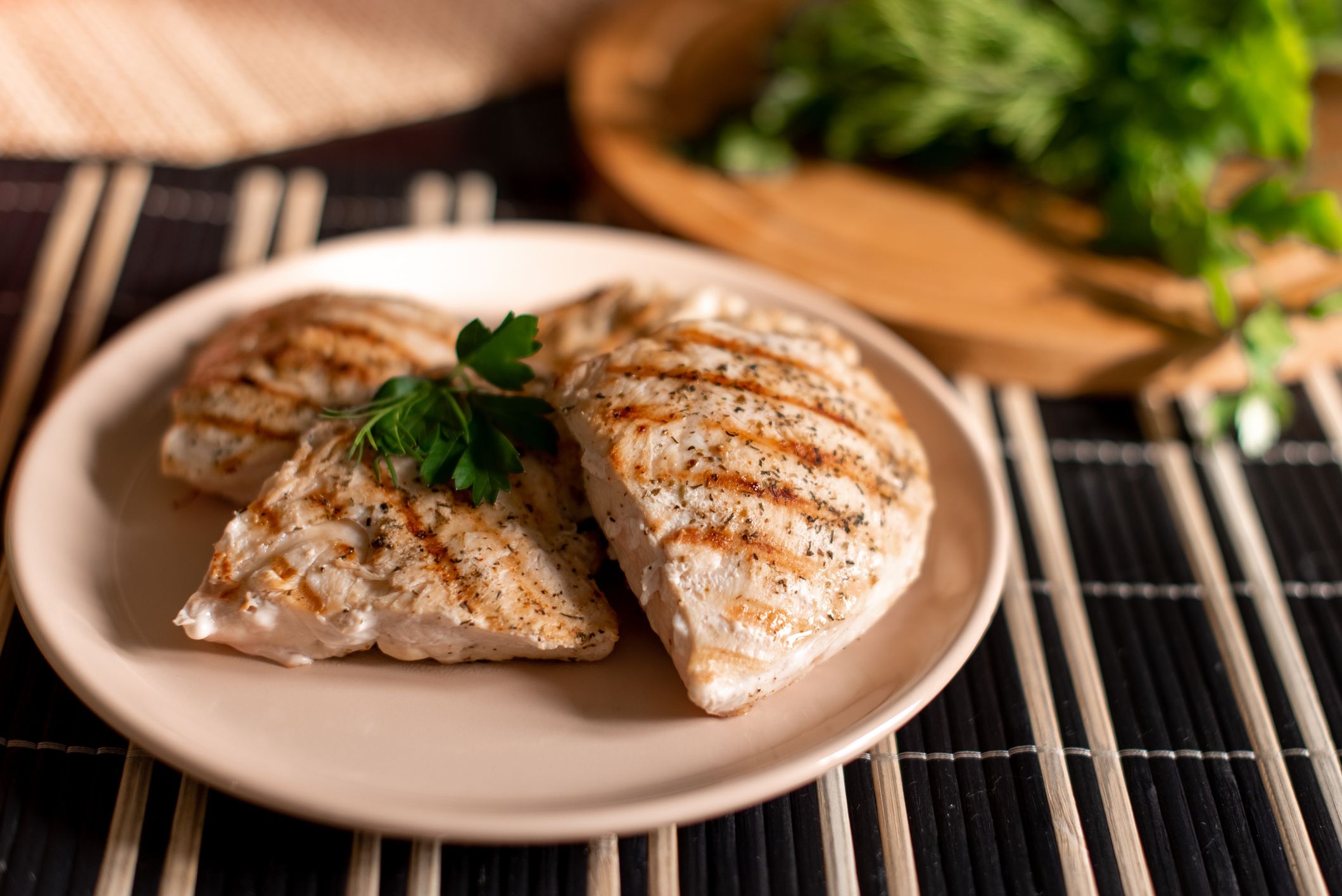
“Protein is an important building block for antibodies and immune cells and supports wound healing,” says Weiler. The latest research suggests that women need even more protein than many of us are currently eating. Nutrition scientist Dr Donal Layman, one of the world's leading protein researchers, suggest we should be aiming for 100g a day to get the full benefits, including weight loss and feeling full. A 100g grilled chicken breast equates to 31g of protein, and is a good start to adding more protein to your diet.
Legumes
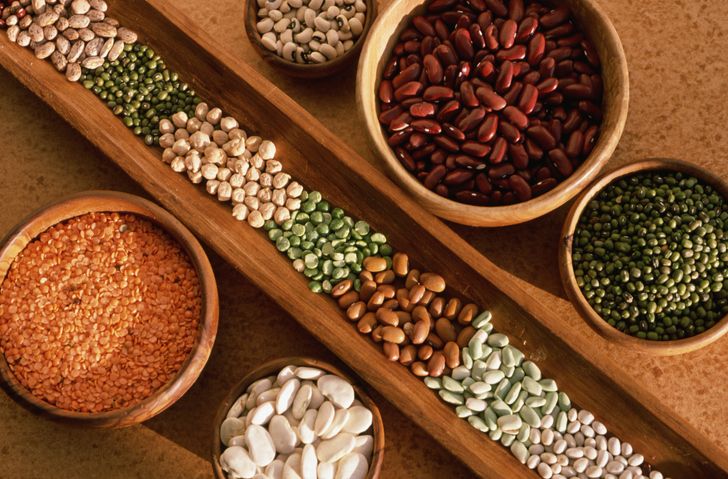
If you eat a plant-based diet and are looking to up your protein intake for immunity function, Weiler recommends having a legume salad or a side of baked beans. Half a cup of cooked legumes contain 8g of protein, while half a cup of cooked chickpeas contain 7.5g of protein.
Celery
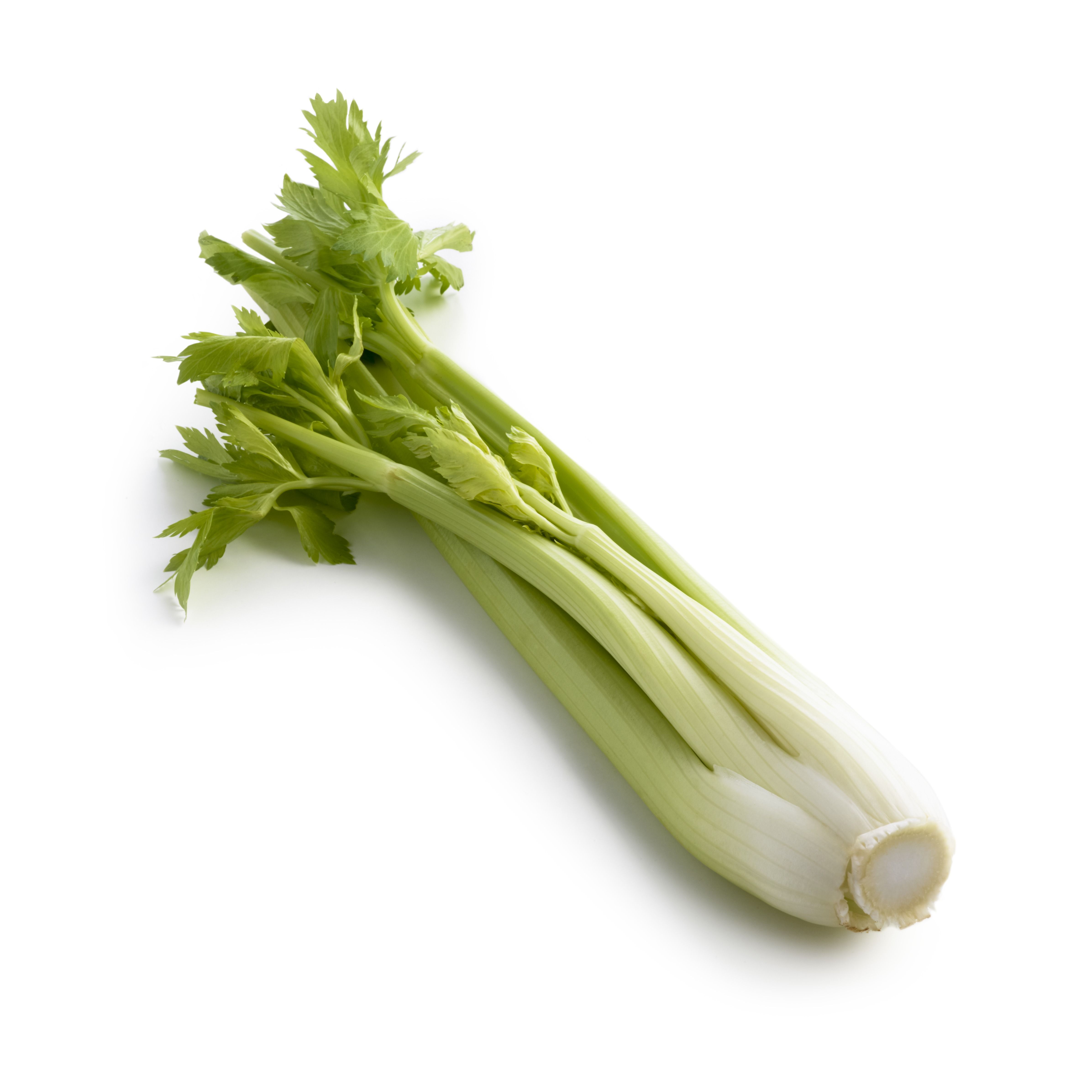
Celery is high in fibre, “which provides nourishment for beneficial bacteria in the gut to support the immune system,” says Weiler. The satisfyingly crunchy snack also has a high water content, which can boost hydration for immune and digestive systems in need. “Hydration is critical to maintaining mucous membranes, which aid in the trapping of bacteria and viruses and assists with their release via coughing and sneezing,” Weiler explains.
Kiwi
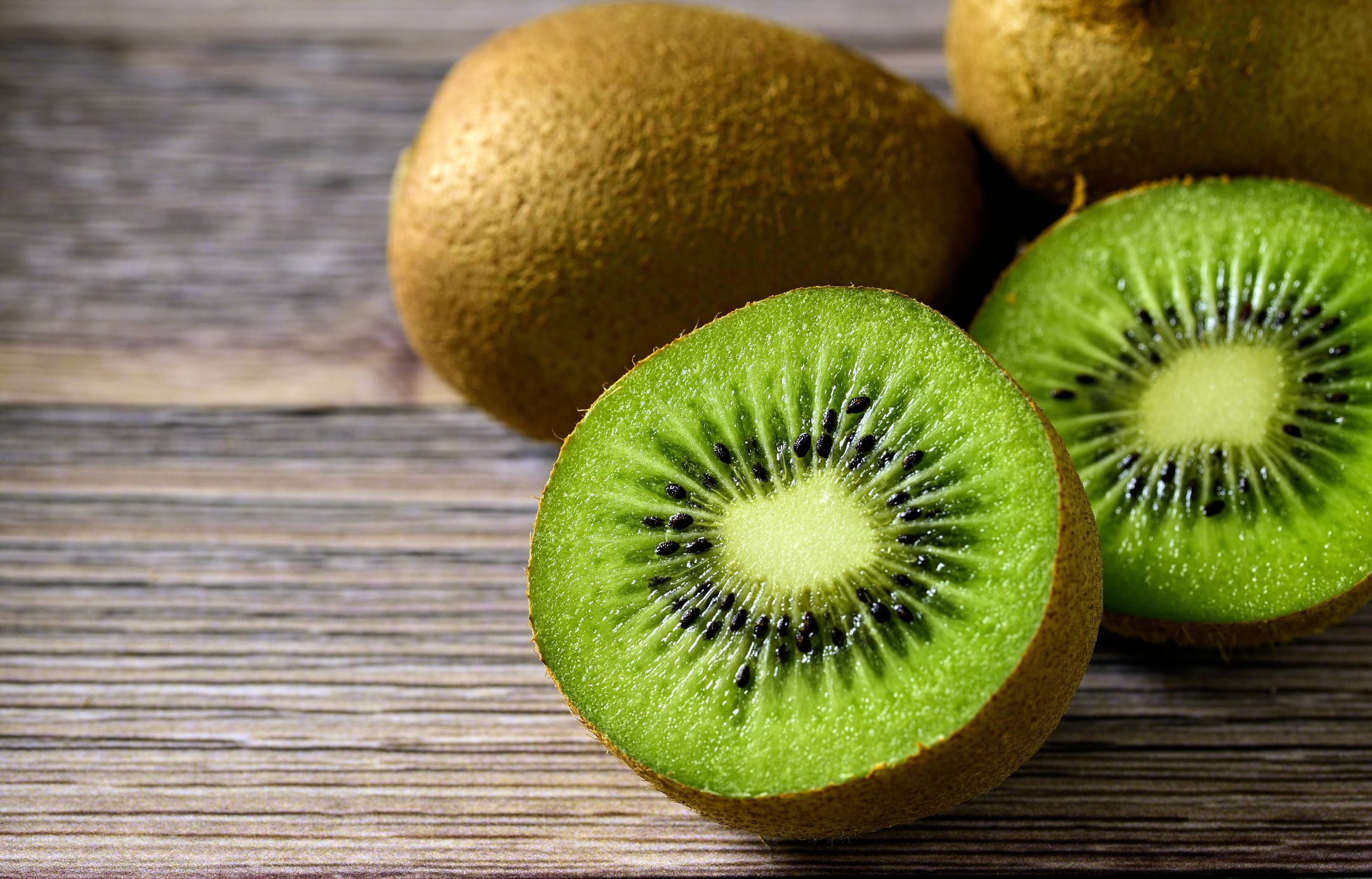
Kiwi contains vitamin E and water, which translates to protection and hydration essential to all bodily systems. “Vitamin E has been shown to increase the percentage of T cells, the white blood cells that seek out and destroy harmful invaders,” adds Weiler.
Blueberries
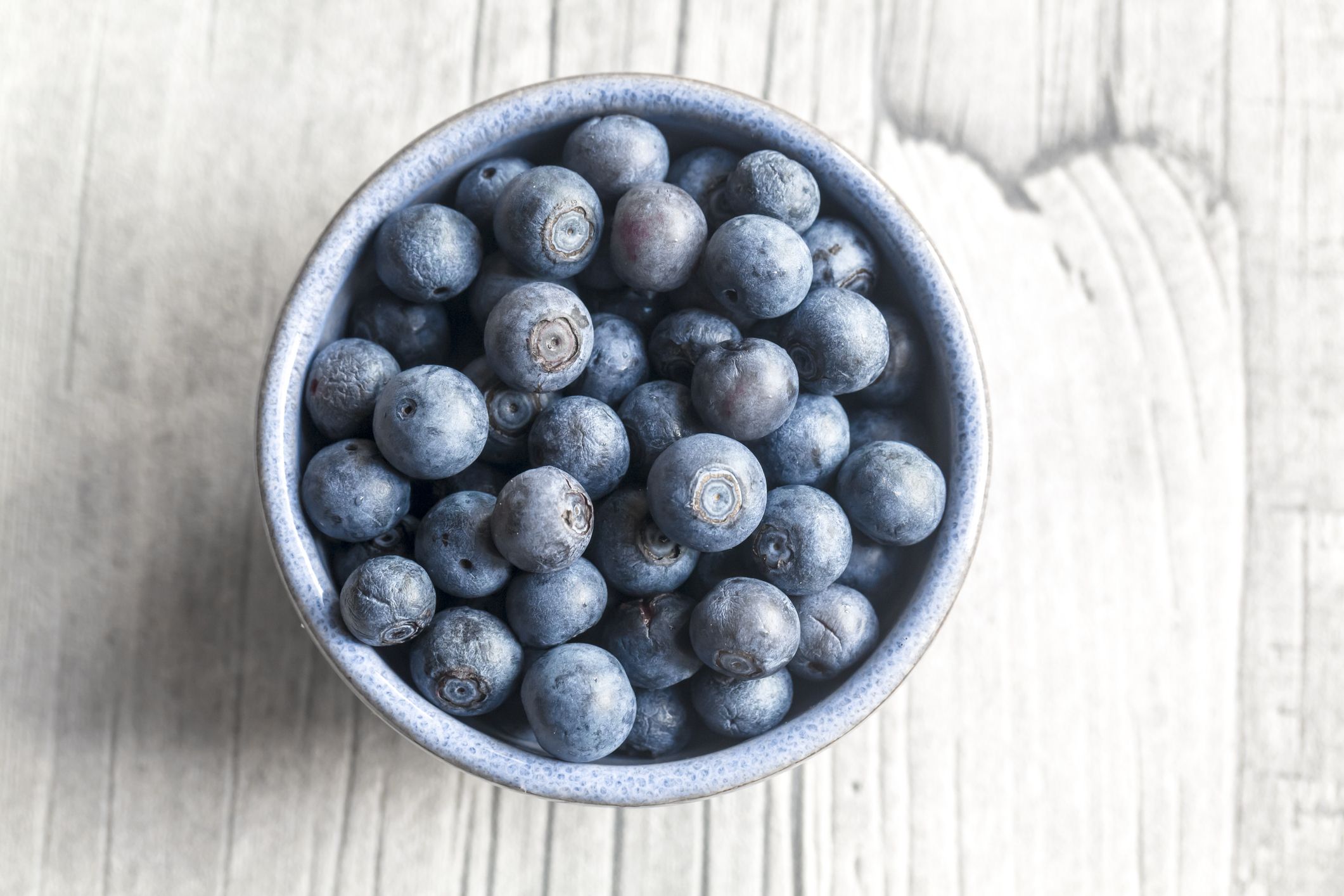
Blueberries are abundant in polyphenols, an antioxidant that protects against inflammation. That’s why the superfood has been studied for its many health benefits, including those for heart and immune health.
Brazil nuts
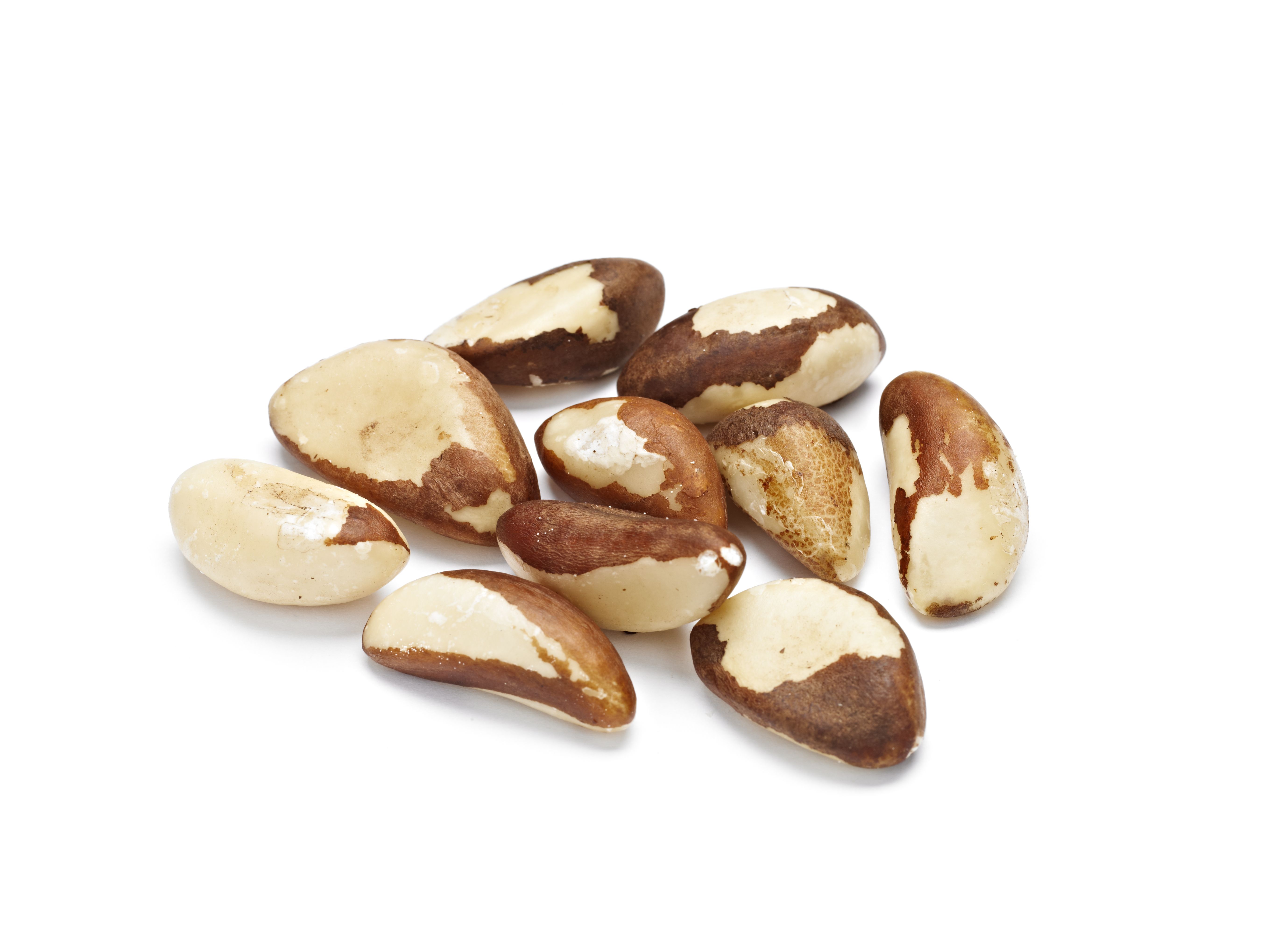
Brazil nuts are high in selenium, explains Weiler. Selenium, via selenoproteins and enzymes, has antioxidant properties that help to break down peroxides that can damage tissues and DNA.
Additional reporting by Alisa Hrustic.








